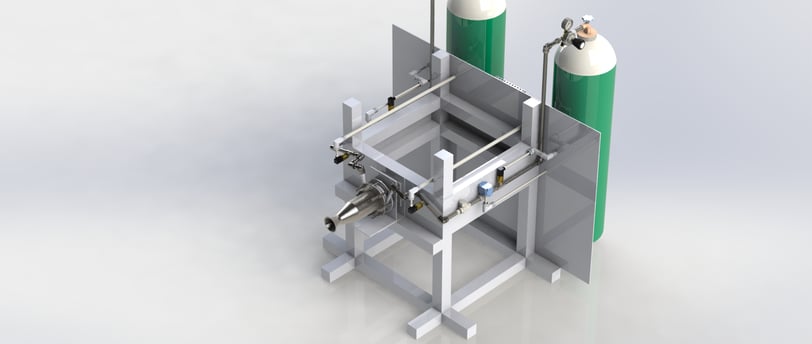AH #7 Ethanol-LOX rocket Egnine
At Ahead Space, we are pioneering the future of rocket propulsion research and development for developing countries
5/8/20242 min read


From Project AHEAD, the AH #7 Engine is our approved ethanol and liquid oxygen-fueled rocket engine design. But getting here wasn’t just about making one engine—we designed and simulated multiple iterations before validating and moving to the next step: production.
Why Build a Rocket Engine?
Rocket engines are among the most complex technologies to develop. They demand an immense level of skill, expertise, budget, and time. In fact, more than 50% of a rocket’s development budget is typically spent on the engine alone. The difficulty in mastering rocket engine technology has contributed to the industry's long-standing monopoly, making it one of the most classified and strategically controlled fields in the world.
Our journey in developing the AH #7 Engine began as an effort to tackle the skills gap in rocket propulsion. Without the ability to build an engine, solving the larger challenges of space access remains impossible. However, during the design phase, we uncovered a critical insight: manufacturing a prototype locally and affordably was within reach. By using stainless steel 316, we found that the machining costs were comparable to standard steel parts—challenging the assumption that building a rocket engine requires an exorbitant budget.
Breaking the Monopoly
Rocket propulsion technology has long been dominated by a few major players, which has kept costs high. A clear example is the price of sending an astronaut to space. When SpaceX entered the market, the cost dropped from $80 million to $50 million per seat—highlighting how competition can drastically change the industry.
Yet, despite SpaceX’s impact, the monopoly has simply shifted toward Western companies, leaving Africa and the developing world at a disadvantage. Most commercial rocket systems today are designed for Western economies, making them financially unfeasible for many countries. As one CTO at an African space agency put it, "It doesn't make sense to launch more satellites"—not because there’s no need but because the costs are prohibitive.
A New Model for Space Access
Building rocket propulsion technology locally opens the door to a completely new and tailored model for space access—one designed by and for Africa and the developing world. The advantages are clear: lower labor costs, reduced manufacturing expenses, and a more efficient value chain compared to Western models. We can create a sustainable and independent space industry by leveraging these factors.
The AH #7 Engine is more than just a rocket engine—it’s the foundation for a future where space exploration is accessible to nations that have long been left behind. This is the beginning of a new era in rocket development, one where Rwanda, Africa, and other developing regions can take control of their space destinies.
